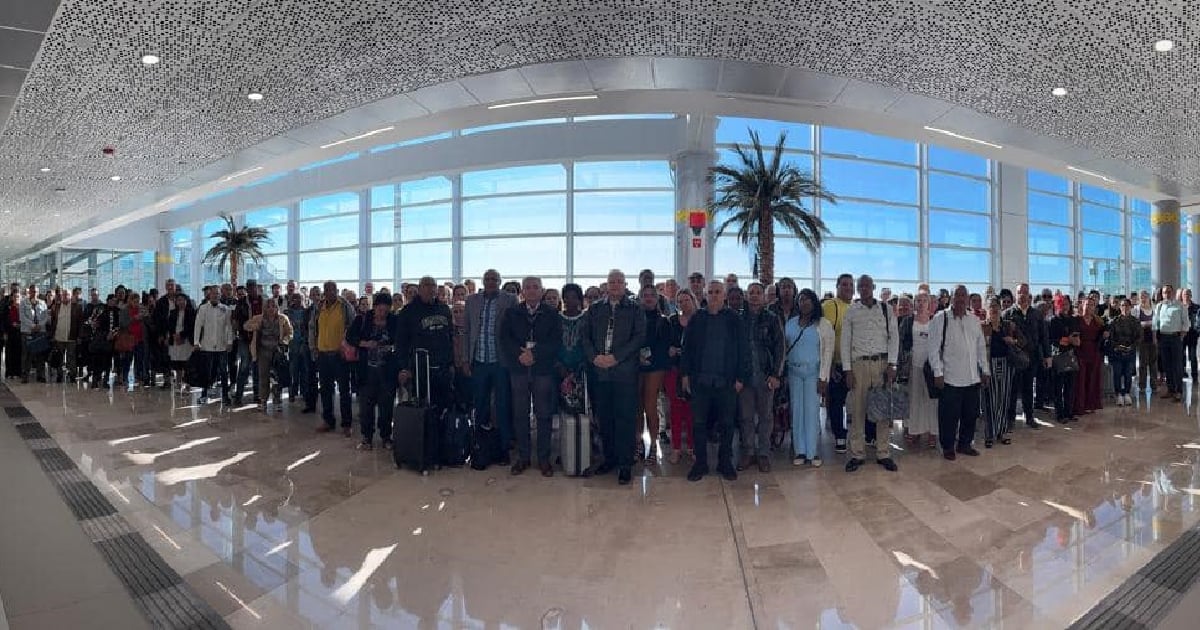
A group of 199 Cuban doctors from 29 specialties arrived in Mexico on Monday as part of the ongoing agreements between the governments of both countries. These agreements have sparked controversy and criticism due to the crisis of health professionals on the island and the substantial income generated for the Cuban regime from their hiring.
Cuban doctors will work alongside their Mexican colleagues in remote communities across 24 states, the Cuban Embassy in Mexico reported in a brief statement on its social media.
The large group of specialists joins the more than 3,000 already providing services in Mexico since the arrival of the first 54 doctors from the island on July 22, 2022, as part of the "bilateral cooperation," according to the state-run agency Prensa Latina.
While the Cuban population suffers from a lack of doctors, as well as medications and basic supplies amid the crisis of the national healthcare system, the regime boasts that the "solidarity and experience" of the island's physicians are "ready to save lives."
Last October, the newspaper Reforma revealed that the Mexican government spends an average of 100,000 pesos per month (5,125 dollars) for each of the 3,101 Cuban doctors hired.
The monthly salary of healthcare workers amounts to 27,000 pesos (over 1,300 dollars), which is deposited into a state-owned company in Havana. Additionally, the Mexican government spends an average of 77,394 pesos per month (around 4,000 dollars) on each worker for transportation, food, and accommodation expenses.
In September, it was revealed that the government of then President Andrés Manuel López Obrador (AMLO) had paid approximately $24,340,000 to the Cuban regime for the services of 610 doctors from July 2022 to December 2023, according to reports from the newspaper El Universal.
The payment was made by the Mexican Social Security Institute (IMSS) to the Cuban private company Comercializadora de Servicios Cubanos, S.A.
According to the investigation conducted by the newspaper, the IMSS was unaware of how much money was invested in the salaries of each of the healthcare professionals included in the agreements, as "the hiring process is entirely the responsibility of the company based in Cuba."
At the end of July, Mexico announced that it would increase the number of Cuban doctors hired to work in the country to 3,800, aiming to improve healthcare in 23 states.
The agreements between both governments only intensify the controversy surrounding the shortage of doctors in Cuba, where the lack of healthcare personnel seriously impacts the local population.
Additionally, human rights organizations and international bodies have criticized the regime for the burdensome working conditions imposed on the doctors it exports to other nations, which are described as "modern slavery."
However, the regime in Havana continues to receive substantial income from medical missions around the world.
In recent years, Mexico has been an ally and supporter of Miguel Díaz-Canel's government, not only through the supply of fuel and humanitarian aid but also through agreements such as the purchase of stone for the Maya Train and the hiring of healthcare professionals.
Filed under: